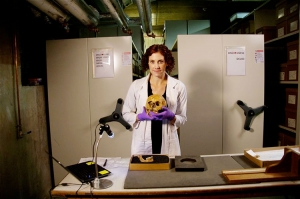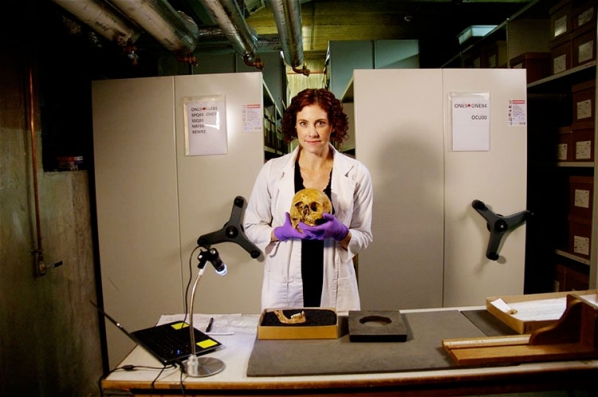Dr. Sharon DeWitte, Distinguished Professor of Anthropology, University of South Carolina, Columbia
Thursday, Nov. 1, 2018
6-7:30 p.m.
Belk Library and Information Commons, Room 114
The 2014-16 Ebola epidemic focused the world’s attention on the dangers of emerging diseases. Many diseases have emerged in recent decades, and researchers have primarily focused their attention on determining when, where and why new diseases will emerge. However, emerging diseases are not just a recent phenomenon in human populations. Research on past diseases, using bioarchaeological and paleomicrobiological approaches, can deepen the temporal scope of our understanding of the causes and consequences of emerging diseases. DeWitte’s research focuses on an emerging disease of the 14th-century - the medieval Black Death - using skeletal samples of people who died before, during and after the epidemic. DeWitte will discuss her paleodemographic research examining the factors (such as famine) that may have increased vulnerability to an emerging disease in medieval London, variation in risks of mortality during the Black Death itself, and the demographic and health consequences of the epidemic. She will highlight how bioarchaeological research on past epidemics such as the Black Death can improve our understanding of emerging diseases and human-pathogen coevolution in general, and its relevance for living people.
DeWitte is an Associate Professor at the University of South Carolina. She earned her PhD in anthropology, with a focus on biological anthropology, at the Pennsylvania State University in 2006. She came to USC in 2011 after having been an Assistant Professor of Anthropology and a member of the Human Biology Program at the University at Albany, SUNY.
She is a biological anthropologist with research interests in bioarchaeology, paleodemography and paleoepidemiology. She applies hazard modeling to address issues of heterogeneous frailty and selective mortality in past populations, and has examined risks of mortality during the medieval Black Death, in post-Conquest Roman Britain, in medieval monastic communities and in Industrial-era London. Her research has primarily focused on uncovering variation in risk of mortality during the Black Death and the health and demographic consequences of the epidemic.
This event is sponsored by the Appalachian State University Departments of Anthropology, Biology and Health and Exercise Science, as well as the College of Arts and Sciences.
###
About the Department of Anthropology
The Department of Anthropology offers a comparative and holistic approach to the study of the human experience. The anthropological perspective provides a broad understanding of the origins as well as the meaning of physical and cultural diversity in the world — past, present and future. Learn more at https://anthro.appstate.edu.
About the Department of Biology
The Department of Biology is a community of teacher-scholars, with faculty representing the full breadth of biological specializations — from molecular genetics to landscape/ecosystem ecology. The department seeks to produce graduates with sound scientific knowledge, the skills to create new knowledge, and the excitement and appreciation of scientific discovery. Learn more at https://biology.appstate.edu.
About the Department of Health and Exercise Science
The Department of Health and Exercise Science in Appalachian State University’s Beaver College of Health Sciences delivers student-centered education that is accentuated by quality teaching, scholarly activity and service. The department includes three undergraduate academic disciplines: athletic training, exercise science and public health. The department also offers a master’s degree in exercise science that prepares students for advanced study in a variety of related fields, as well as research. Learn more at https://hes.appstate.edu.
Oct. 29, 2018
Ellen Gwin Burnette
Boone, N.C.

